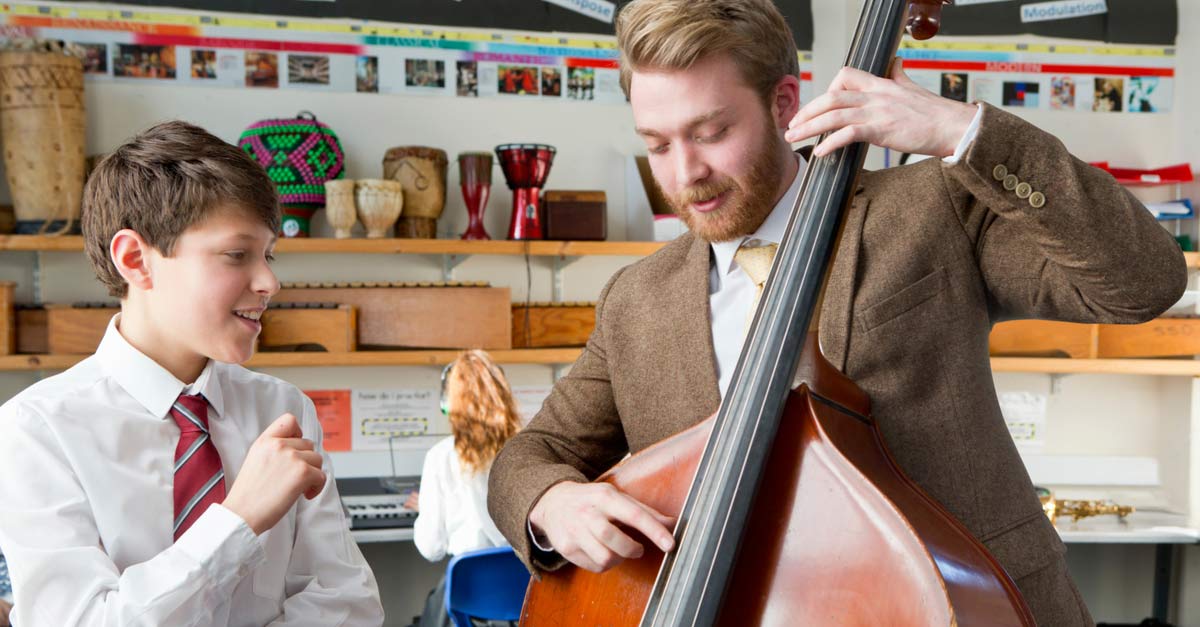The Profound Benefits of Music Education
In a world bustling with various forms of education, the inclusion of music holds a special place. Beyond the melody and rhythm, music education plays a pivotal role in shaping the cognitive, emotional, and social development of children. As a parent or guardian considering extracurricular activities for your child, here are the profound benefits that music education can offer.

Music education, particularly learning to play an instrument, demands the memorization of notes, rhythms, and patterns. This continuous exercise in memory contributes to the development of strong memory skills, which can be advantageous in academic settings and everyday life.
The language of music is inherently mathematical. Counting beats, understanding rhythms, and grasping musical structures involve mathematical principles. Engaging with music naturally enhances a child's mathematical abilities, laying a foundation for success in school subjects like mathematics.
Music is a powerful medium for emotional expression. Through learning to play an instrument or participating in vocal activities, children can express a range of emotions – joy, sadness, excitement, or calmness. This emotional outlet contributes to the development of emotional intelligence, helping children understand and manage their feelings.
Playing music has a therapeutic effect, promoting stress reduction and relaxation. Children often face various stressors in their lives, and music becomes a soothing escape. The ability to create and appreciate music provides a coping mechanism that can last a lifetime.
Music education often involves group activities, whether it's playing in an ensemble or singing in a choir. Collaborative musical experiences teach children the importance of teamwork and cooperation. They learn to listen to others, synchronize their efforts, and collectively create a harmonious piece of music.
In a musical ensemble, communication is non-verbal yet deeply profound. Children learn to communicate through their instruments or voices, developing a unique form of expression. This enhances their overall communication skills, fostering an ability to convey messages effectively in different contexts.
Mastering a musical instrument requires consistent and disciplined practice. Children learn to manage their time effectively, establishing structured practice routines. This disciplined approach extends beyond the realm of music, positively influencing their approach to academics and other activities.
If you are interested in learning music check out our Music Lessons in Tempe.
Musical education is a journey filled with challenges – mastering difficult pieces, overcoming performance anxiety, and persisting through moments of frustration. These challenges cultivate resilience and perseverance, teaching children that success often follows persistent effort.
Participating in music recitals, concerts, or performances provides children with opportunities to showcase their musical talents in front of an audience. These experiences contribute to the development of self-confidence and stage presence, valuable qualities that extend into various aspects of life.
Mastering a musical piece or achieving a particular skill level on an instrument creates a sense of personal accomplishment. Recognizing their progress fosters a positive self-image, empowering children to approach challenges with confidence.
Music education encourages children to explore their creative side. Whether through composing their melodies, improvising, or experimenting with different musical styles, they learn that creativity knows no bounds. This imaginative exploration enhances their overall creative thinking skills.
The interdisciplinary nature of music allows children to integrate their artistic expressions with other academic disciplines. This holistic approach to learning fosters creativity and a well-rounded educational experience.
Research consistently shows a positive correlation between music education and academic achievement. The skills developed through musical learning, such as focus, discipline, and critical thinking, contribute to a well-rounded academic profile. Students engaged in music often outperform their peers in standardized tests and exhibit a higher level of proficiency across various subjects.
The qualities instilled through music education – teamwork, communication, and creative problem-solving – align seamlessly with the demands of the modern workforce. As children progress through their education, the skills acquired in music become valuable assets, preparing them for success in a variety of careers.
Music is a universal language that transcends cultural boundaries. Music education exposes children to a rich tapestry of musical traditions from around the world. This cultural diversity fosters an appreciation for different perspectives and traditions, contributing to the development of global citizens with a broad understanding of the world.
Through the exploration of various musical genres and styles, children learn to appreciate the diversity of human expression. This exposure promotes tolerance, empathy, and an inclusive mindset. Music education becomes a catalyst for celebrating the richness of human culture and fostering a sense of unity in diversity.
The seeds of a lifelong love for music are sown during childhood through music education. Children who engage with music are more likely to continue their involvement into adulthood, whether as amateur musicians, avid concert-goers, or music enthusiasts. This enduring passion for music contributes to a lifelong journey of learning and cultural enrichment.
Music education creates a lasting connection to the arts and community. Individuals who have experienced the transformative power of music in their formative years often become advocates for the arts in their communities. This advocacy, whether through supporting local music programs or participating in community ensembles, strengthens the cultural fabric of society.
As we conclude this exploration of the benefits of music education for children, it becomes evident that the impact extends far beyond the immediate years of learning. Music education is not just a phase; it's a lifelong symphony that resonates in the hearts and minds of individuals, shaping their character, enhancing their academic and professional pursuits, and fostering a deep connection to the world around them.
Enrolling your child in music education is not just an investment in their current development; it's an investment in a lifetime of growth, enrichment, and the harmonious celebration of the human spirit.
If you like this check out our article: What is the Omnibook
